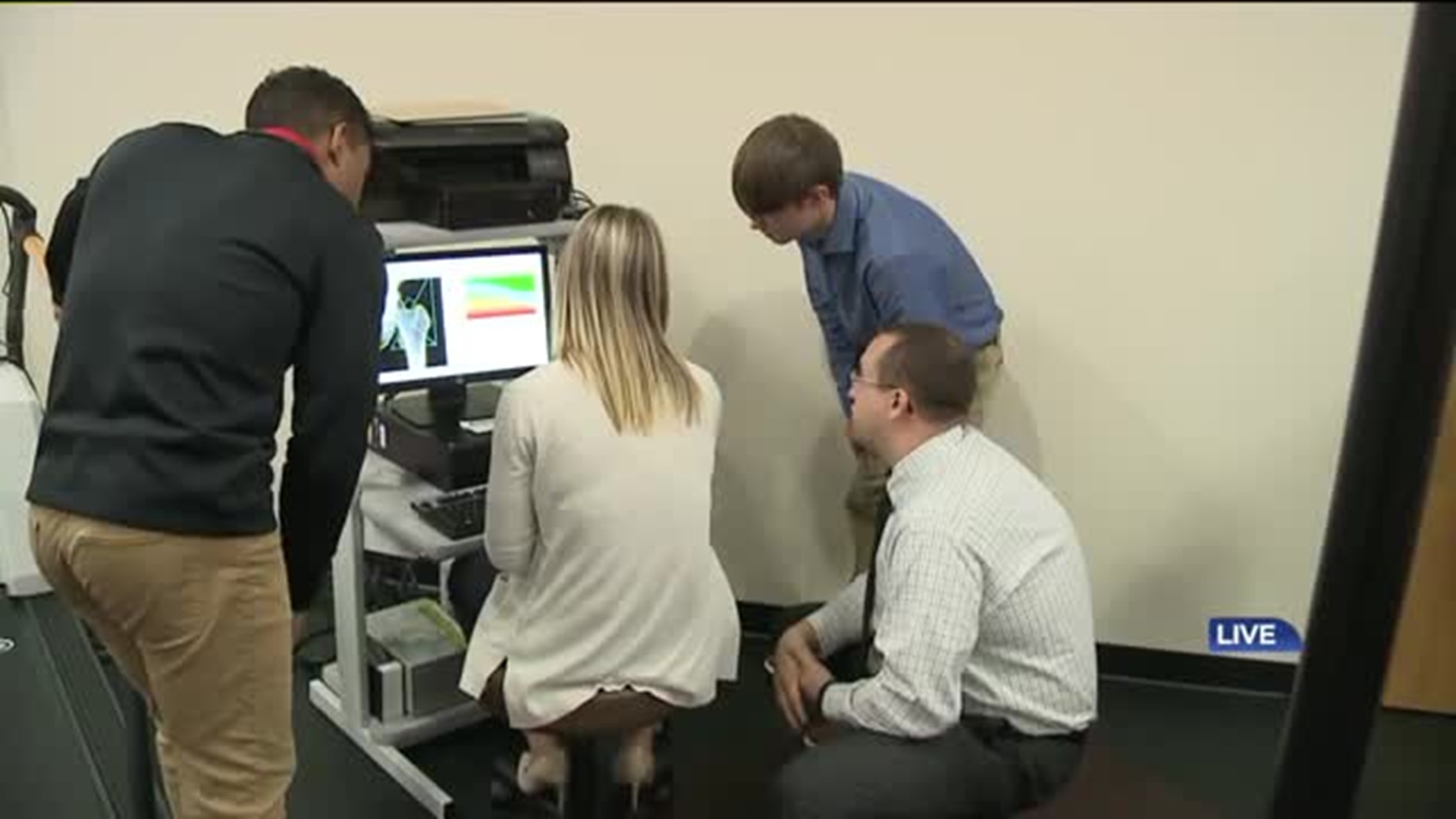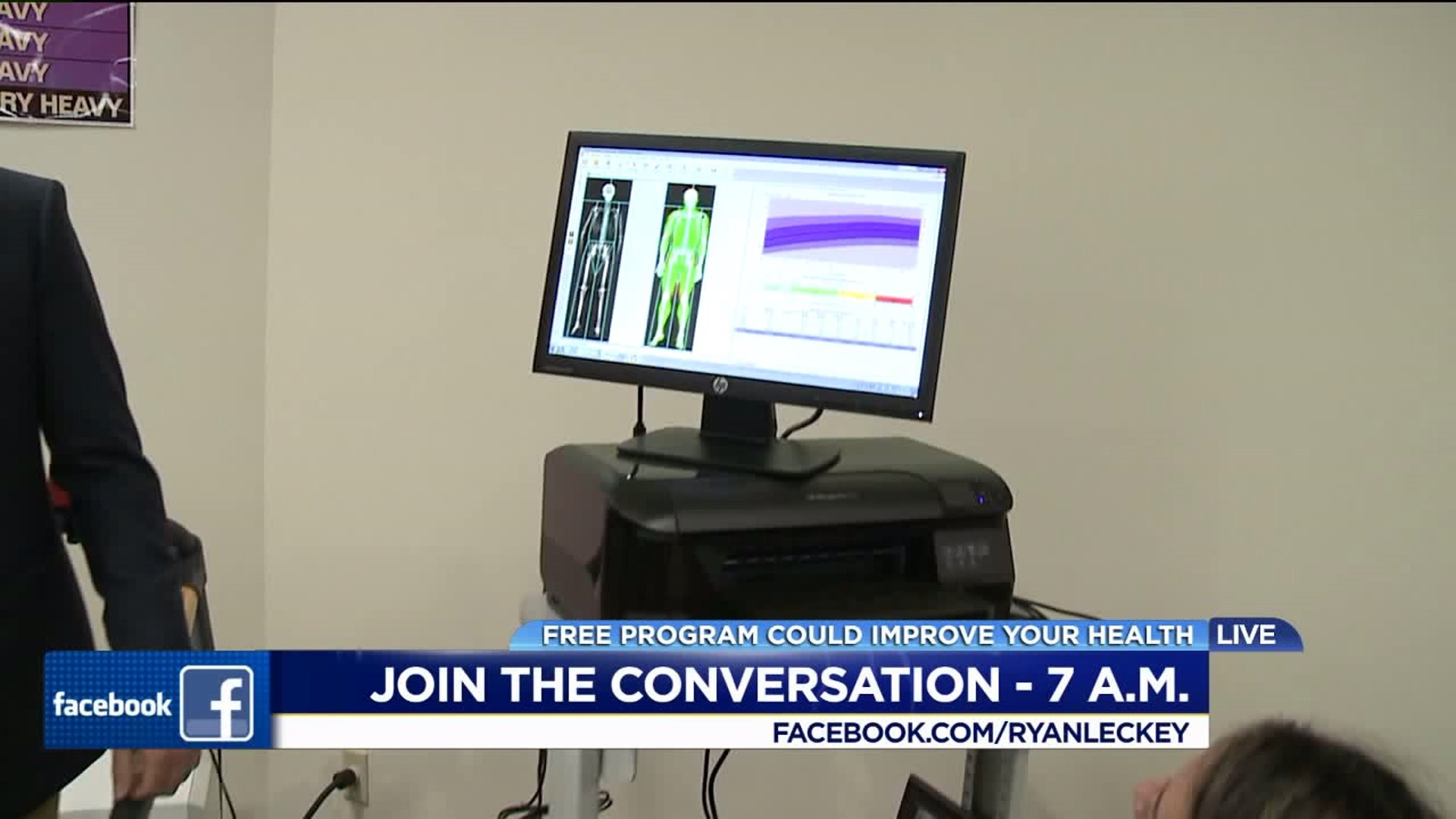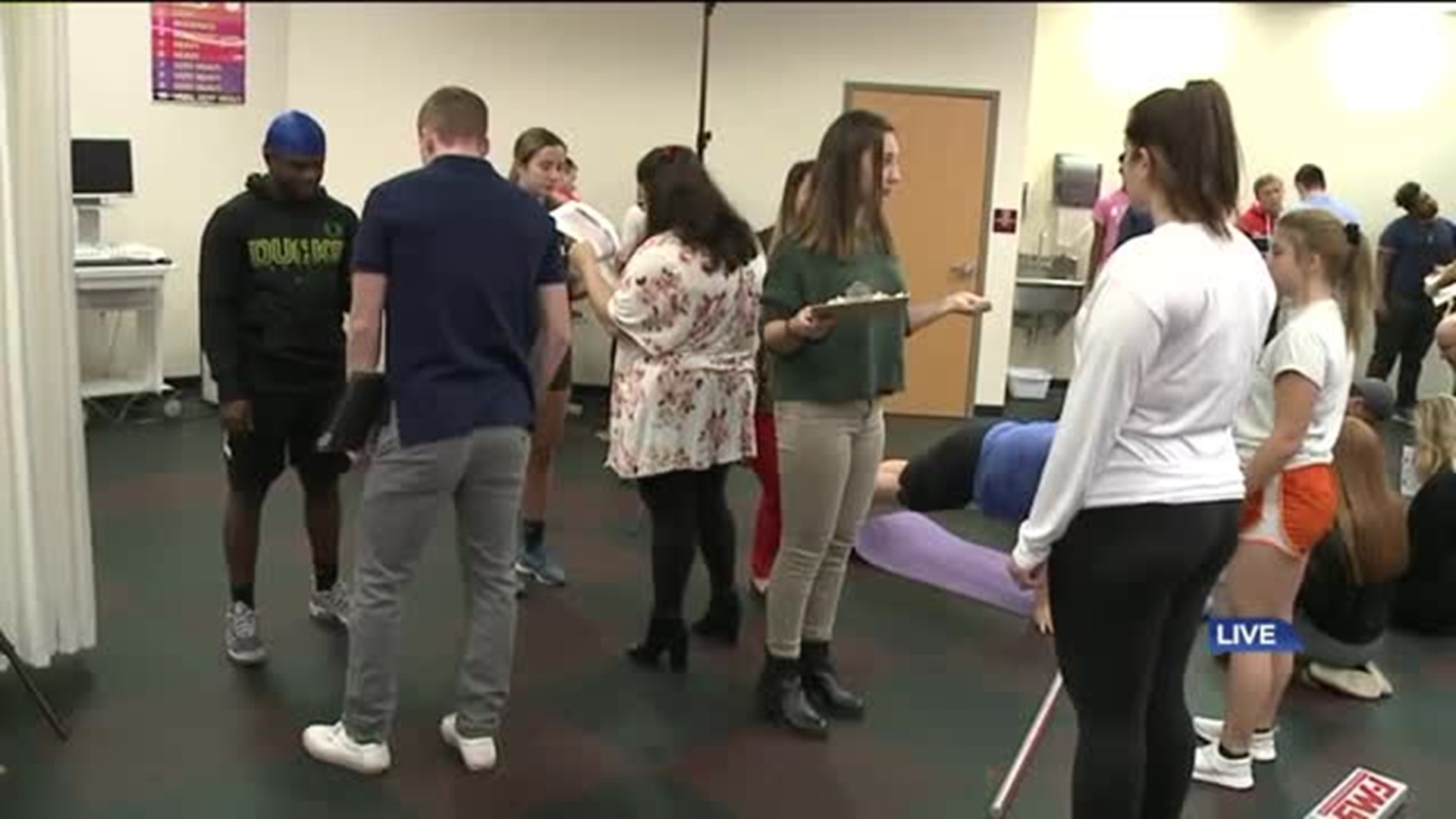Whether you’re struggling with a few daily activities or with weight issues, a free program in our area wants to not only help you detect what the problem is but provide the help to fix it too.
It's called the "HAWK program," and it's underway at King's College in Wilkes-Barre.
Newswatch 16's Ryan Leckey spotlighted the program on Friday.
HAWK stands for "Health and Wellness at King's."
The program offers FREE health and wellness assessments of cardiovascular and musculoskeletal health to people between 21 and 75 years of age.
The assessments take two hours per person and only happen on Tuesdays from 5 p.m. to 7 p.m. at King's College. They're held inside the Exercise Science Laboratory at King’s located at 20 Public Square in Wilkes-Barre.
Screenings will be held each Tuesday evening from early October through early December and then again starting in February through late April.
If you are interested in participating, email health.wellness@kings.edu to schedule an appointment. All information is kept confidential. Organizers prefer people to sign up through email since study results and a prescribed "fix-it plan" are always emailed back to individuals.
If you have any further questions, please call contact 570-208-5900 ext. 5688.
The King’s College Department of Sports Medicine organizes the HAWK program.
In the clip below, Ryan Leckey tries the DEXA scan to learn his bone density and body fat analysis.
The following HAWK Facts & Stats have been provided by King's College.
The program includes FREE testing and interpretation of results. It will consist of a comprehensive assessment of body composition, blood pressure analysis, full-body DEXA scan for bone density analysis, resting EKG, cardiac stress testing, gait and posture analysis, muscular function assessment, and basic orthopedic screening.
All participants that we see undergo a 12-lead EKG test. We look for a number of cardiac health markers, and participants present with many different indicators for cardiac abnormalities and disease. 80% of participants present with at least one marker of a cardiac abnormality.
Further, we take extensive blood pressure measurements of all our participants. We take 10 different blood pressure during different postures, during rest, as well as exercise (a normal physician will take one measure only). A person’s blood pressure is an important measure of the health of the cardiovascular system. Having high blood pressure significantly increases a person’s risk of heart failure and stroke. 75% of our participants have high blood pressure.
We also measure our participants’ physical fitness through a series of tests. Physical fitness is a strong predictor of all-cause mortality (the risk of dying for any reason). Additionally, lack of fitness is a strong predictor for a number of diseases, including heart disease, stroke, osteoporosis, cancer, depression, anxiety, and many more. 78% of our participants present with poor levels of fitness.
Finally, every participant undergoes and extensive analysis of their body composition, including analysis of their bone strength. Body composition and bone health are important measures of a person’s independence and for the prevention of falls and bone fractures.
To date, we have had over 200 screened participants and designed individualized exercise programs, as well as created comprehensive reports with referrals to other healthcare providers.
Head here to see a previous story on the HAWK program from Newswatch 16.



